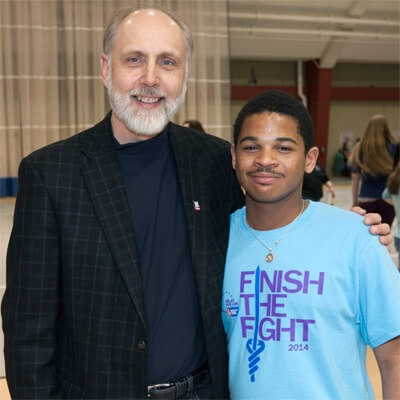by Michael Kolb
President Douglas Baker has been stalwart in his singular message that it is NIU’s goal to educate and prepare students for career success. This message has initiated considerable discussion across campus about how we as an institution, and as individuals, define career success.
Although most people would say that career success is more than simply finding a well-paying job, the world we live in often uses only objective measures in defining success such as salaries, job titles or acceptance rates into high-quality advanced degree programs.
These are difficult economic times, and it natural to question the value of a college degree that requires a considerable investment of time and money. Moreover, many of our national leaders, including President Barack Obama, continue to suggest that perhaps public higher education should focus more on preparing students for specific jobs and less on providing a broad education.
So how should NIU prepare students for career success?
Our top priority should be to offer the proper blend of academic, technical and critical-thinking skills so that students are flexible and nimble enough to be able to thrive in a 21st century economy where many future jobs have not even been invented yet. Our graduates must leave as lifelong learners – prepared for both the challenges and the marvels of the future.
Students understand this, and they understand that a college education offers multiple positive outcomes that prepare them for career success.
 According to a recent student survey conducted by the Cooperative Institutional Research Program, almost 86 percent of entering students indicated that the No. 1 reason they pursue a college degree was “to get a better job;” yet 72 percent also indicated that “a general education and appreciation of ideas” was also important.
According to a recent student survey conducted by the Cooperative Institutional Research Program, almost 86 percent of entering students indicated that the No. 1 reason they pursue a college degree was “to get a better job;” yet 72 percent also indicated that “a general education and appreciation of ideas” was also important.
And while NIU’s offers top-notch degree programs that provide the academic and technical depth, we need to reinvest in our General Education program so that it might better deliver a challenging richness of breadth, not only with content exposure, but in terms of competencies.
The emphasis on degree specialization in higher education has come at the expense of the general education studies, even though general education courses make up approximately one-third of our baccalaureate degree program and attends to the foundational skills employers want. Our students view our General Education program as irrelevant, while faculty and advisers need to better convey the value of this critical component of the educational experience.
A revitalized general education program is an important step in solving our enrollment and retention issues. We will continue to lose potential first-year and transfer students if we cannot offer a viable general education experience that sets us apart from other collegiate institutions.
The NIU PLUS Task Force has released a set of potential curricular reforms in response to the declining enrollment and student disinterest of our existing general education program. These reform efforts are imperative for improving the success of our graduates and assuring the success and longevity of NIU in the 21st century. Please take the time to review these proposed options and give us your feedback by no later than Thursday, May 1.
Michael Kolb is general education coordinator and professor of anthropology at NIU.

